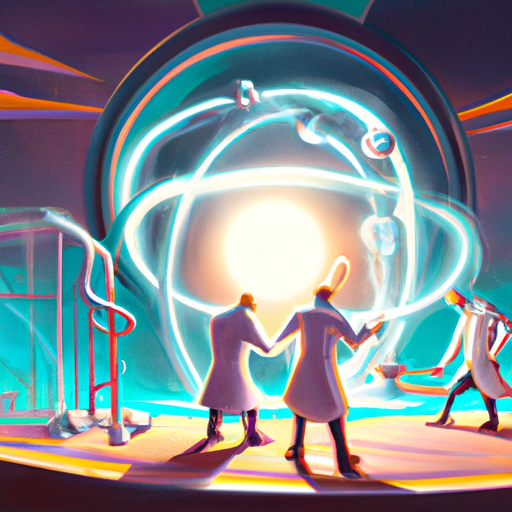
Market will resolve to yes if the author is convinced cold fusion is possible. Things which would change my mind on this topic: a paper published in a top journal for the mechanism behind the anomalous energy reactions found by Fleischman and Pons, with a model predicting how to control the reaction, and replications of said paper in other top journals. A working cold fusion generator which a commission of nuclear engineer's/scientists confirm actually works. Or a commercially succesful energy company claiming they use cold fusion, with a replicable patent. Or a real money prediction market with over $1 million dollars in it predicts cold fusion is posible with a price of >$0.95/share.
EDIT: This market will resolve to no via similair mechanisms for resolving yes e.g. papers showing the reactions aren't nuclear, liquid real money prediction markets on this question trading at $0.05/share etc.
Otherwise, the market will be unresolved.
Summary of Ch 6 of "Where's my flying car" by J. Storrs Hall.
--------------------------------------------
Cold fusion has been much maligned by the mainstream scientific community. Part of this consensus was due to the USA's Department of Energy forming a committeeto investigate the initial claims by Pons and Fleischmann that they had produced fusion in an electrochemical beaker:

For whatever rason, Pons, Fleischmann and their University of Utah rushed a paper into print and held a press conference. The DoE decided to investigate in 1989, in the midst of a political battle by High Energy Physicists to fund the Superconducting Super COllider. The committee, chaired by nuclear weapons experts Norman Ramsey and John Huizenga. Huizenga felt his duty was to discredit cold fusion; Ramsey to evaluate it.
The report listed 11 positive, and 13 negative, experiments for excess heat. The principal investigator, Melvin Miles, is convinced the phenomena is real. Ramsey threatened to resign unless claims like "... it is not possible at this time to state categorically that all the claims for cold fusion have been convincingly either proved or disproved." Huizenga went on to write a popular book claiming cold fusion was debunked. The physics community was convinced cold fusion was bunk.
And indeed, much of the research in cold fusion appears to be bunk. Much of the orginal paper was also incorrect. Yet that doesn't mean there isn't something real occuring. Julian Schwinger, who won a nobel prize for his work on QED, resigned from the American Physical Society's treatment of cold fusion. Brian Josepson, another physics laureate, holds cold fusion should be investigated seriously:
"People were too ready to accept the debunkers’ generally ill-informed and fallacious claims, some of the blame for which must be shared by Nature through its selective reporting, and its practice of returning papers reporting successful replications to the authors without refereeing them. Typical errors of the debunkers included not realising that materials do not always behave reproducibly, so that it is unsafe to infer, as many did, that failure to reproduce some effect implies that that effect does not exist; and failing to realise that one cannot safely extrapolate from the extremely high temperatures of thermonuclear experiments to the very different conditions in cold fusion experiments, extrapolations frequently used to discredit the phenomenon. "
The current state of affairs is that there have been decades of hundreds of experiments indicating heat and tansmutations with minimal radiation and low energy input. And many failed replications. Yet these experiments were incredibly finicky, maddeningly intermittent, and required enormous attention to detail: Richard Oriani, a leading chemist of hydrogen in metal, said that cold-fusion experiments were the most difficult he'd ever performed. Many of the failed replications were later found to fail to meet crucial conditions.
In 2004, another report by the DoE ERAB was non-commital, but the remarks of the 18 expert reviewers spanned the spectrum of credences. DARPA, the Navy, and NASA have all chosen to sporiadically fund LENR with low levels of funding.